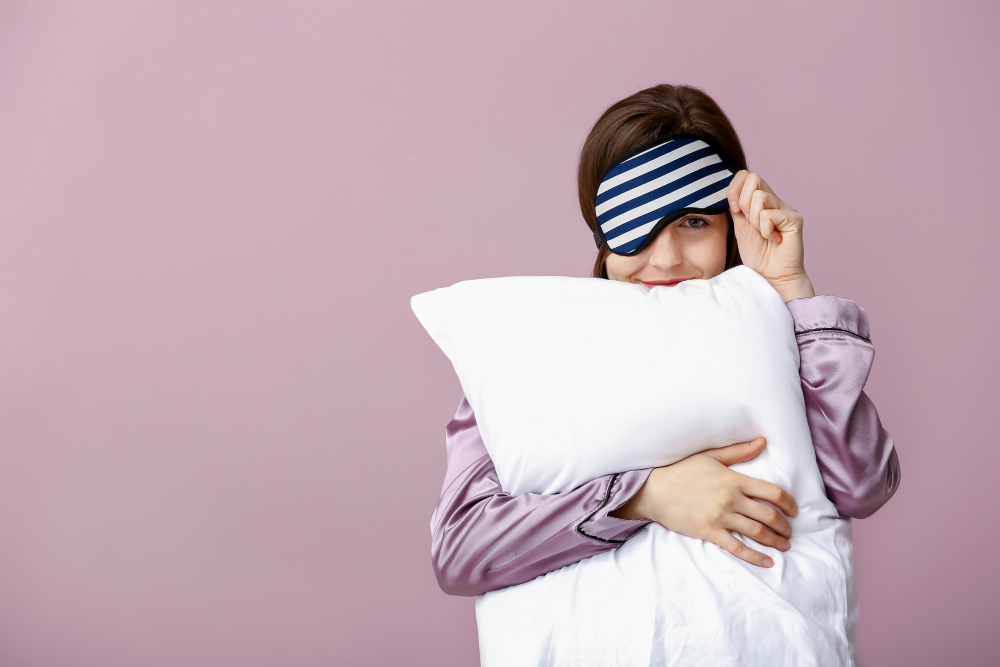When we are sleep deprived, our prefrontal cortices, which are responsible for decision-making and cognitive functioning, will be affected first. The hippocampus, our brain's central processing unit (CPU) of sorts, will be affected next. The motivation to do work or perform any activity decreases while the irritability increases. Considering what a day of little sleep can do to us, one could only imagine what months or years of poor sleep can expose us as.
Sleep Deprivation
Sleep deprivation is a condition in which someone does not get enough sleep. Sleep deprivation can cause numerous physical and mental issues. It has a direct impact on how we feel and think.
It is critical to minimize lack of sleep in order to avoid these issues. Poor sleep habits, work demands, sleep disorders, lifestyle choices, and other medical issues can all substantially contribute to a lack of sleep.
Voluntary actions that restrict available sleeping patterns are frequently the cause of sleep deprivation. An individual who stays up really late to watch movies or TV series, for instance, may suffer from a severe lack of sleep. An irregular sleep schedule might decide these things easier to make and feel less deliberate in the present.
Another major reason for lack of sleep is work demands. Employees who work on several tasks or for long periods of time may not get adequate sleep. Shift workers who must work overnight might find it difficult to get the rest they require. Other sleep problems or clinical problems can cause sleep deprivation. Sleep apnea, for instance, is a respiratory problem that causes dozens of nocturnal awakenings. It can affect both the quality and duration of sleep. Other medical and mental health issues, like pain or generalized anxiety disorder, might disrupt sleep quantity and quality.
How Can Vitamin B Help?
Vitamin B6 deficiency has been associated with sleeplessness and anxiety. Vitamin B6 helps in the creation of the chemicals melatonin and serotonin, which are both essential for good mood and sleep.
Research has shown that Vitamin B6 aids in the regulation of sleep-wake periods by synchronizing circadian rhythms. However, it's unclear whether B12 has a significant effect on sleep. Certain research links low Vitamin B12 amounts to sleeplessness, whereas others relate stronger Vitamin B12 amounts to sleeping disturbance and reduced sleep periods. There are dietary supplements that have vitamin B to improve sleep such as ReCalm
How Can ReCalm Help Me Sleep Better?
Vitamins B6, B9, and B12 are found in ReCalm. It aids in the reduction of anxiety and stress, allowing you to recover your emotional well-being and quality of sleep. ReCalm benefits:
- Improves Sleep Quality Naturally
5-Hydroxytryptophan (5-HTP) is a drug-free, naturally occurring plant-derived amino acid that allows the body to produce Serotonin, a chemical transmitter that aids in sleeping and mood enhancement.
- Anxiety and Stress are relieved
Mucuna pruriens, often referred to as the dopa bean, is a herbal medicinal substance used in the Ayurvedic system of medicine, an ancient Indian technique that decreases stress, and depression increases attention, stimulates sex drive, and improves mood.
- Supports a focused and active mindset
B vitamins, such as B6, B9, and B12, may help to improve cognitive performance, such as focus and memory problems. B vitamins also aid in producing energy, which is required for the development of new brain cells.
Avoiding activities that can adversely impact your sleep is a helpful start in overcoming sleep deficit. Try dietary supplements that can help you sleep better, such as ReCalm. It aids in your sleep, helps if you have anxiety, and helps you be more focused.

